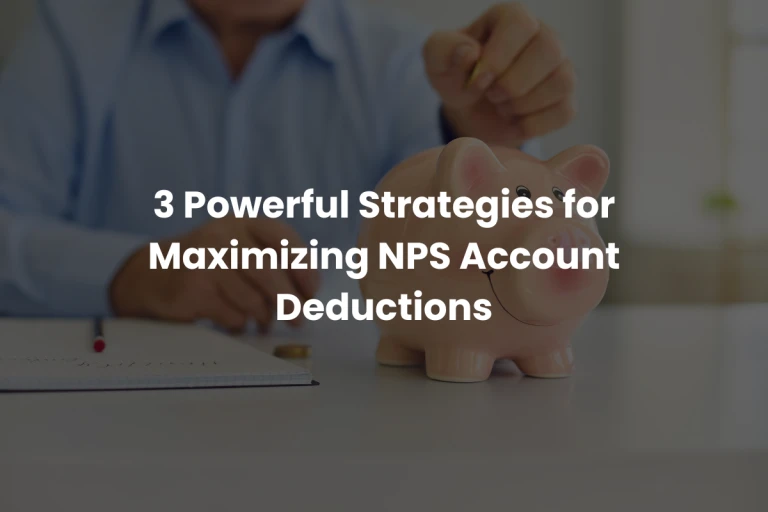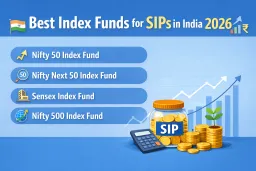3 Powerful Strategies for Maximizing NPS Account Deductions
Ready to level up your tax game? Dive into the world of NPS accounts with us as we spill the beans on three killer strategies to supercharge your deductions. Say goodbye to tax worries and hello to financial wins – let's get started!

What is NPS?
National Pension Scheme(NPS) is a voluntary retirement plan that can be very helpful in accumulating the desired retirement corpus. It is open to all Indian citizens between the ages of 18 and 65. Furthermore, you can start an NPS at the age of 60 and continue to contribute until you reach the age of 70. When you reach the age of 60, you can withdraw 60% of the fund from your retirement account, either all at once or in stages. The remaining funds are used to purchase an annuity.
NPS accounts are classified into two types:
Tier-I – This is a retirement account that must be opened when investing in NPS. This account allows withdrawals only after you reach the age of 60. However, partial withdrawals are permitted under certain conditions.
Tier II – This is similar to a savings account. There are no restrictions on withdrawls
3 Ways to Invest in NPS
When it comes to tax exemptions for NPS, it falls under Section 80CCD with two key subsections: 80CCD(1) and 80CCD(2). Additionally, there's another sub-section, 80CCD(1B). So, we have three avenues to explore: 80CCD(1), 80CCD(2), and 80CCD(1B). Let's break down each of these for better clarity.
80CCD(1): Invest up to Rs 1.5 lakh
In 80CCD(1), you can invest up to Rs 1.5 lakh annually. This investment allows you to claim a tax exemption of up to Rs 1.5 lakh under Section 80C. It's your personal investment, giving you control over your tax benefits.80CCD(1B): Additional Rs 50 thousand exemption
Need extra tax benefits beyond 80C? Enter 80CCD(1B). By investing here, you can claim an additional tax exemption of up to Rs 50 thousand. This is separate from the 80C limit, providing flexibility if your 80C limit is maxed out. Now you can invest up to Rs 2 lakh in NPS and still enjoy tax benefits.80CCD(2): Unlimited employer-backed benefits
No cap on tax benefits! Under 80CCD(2), your employer can make additional investments on your behalf. This is a sweet deal, as there's no limit to the investment, and you still enjoy tax exemptions. Employers often claim this as a business expense. If you're a government employee, the investment can go up to 14 percent of your basic salary and dearness allowance. Others can go up to 10 percent. Let your employer boost your NPS savings while enjoying tax perks!
Key Points to Note
When we talk about salary in this context, we're referring to your basic salary and dearness allowance – not the other allowances you may receive. The 10 percent or 14 percent deduction calculation applies specifically to your basic salary and dearness allowance. To illustrate, if your CTC is Rs 10 lakh, but your basic salary and dearness allowance add up to only Rs 3 lakh, your benefit is capped at Rs 30 thousand (after a 10% deduction).
Starting from the financial year 2020-21, there's a new rule in place. If your employer's contributions to NPS, Provident Fund, and Super Annuation Fund exceed Rs 7.5 lakh, you'll be liable to pay tax on the excess amount. This includes both the principal contribution and any interest or dividends earned on the additional investment.
Also read: SEC has Officially Approved all 11 Spot Bitcoin ETFs
The Bottom Line
Time to boost your savings! NPS is your money buddy. It's not just about taxes; it's about securing your future. Ready to dive in? Start saving now, and watch your money grow!
Follow us on Instagram.









